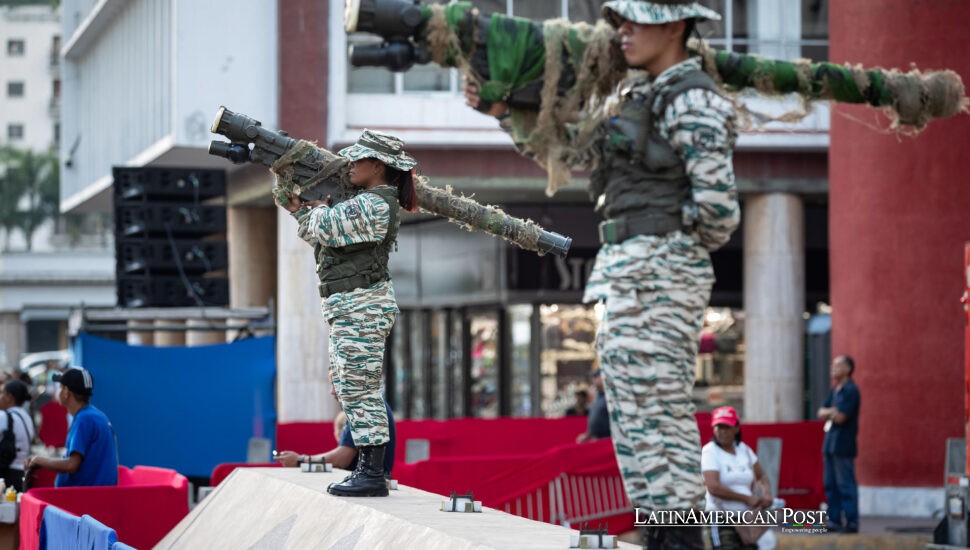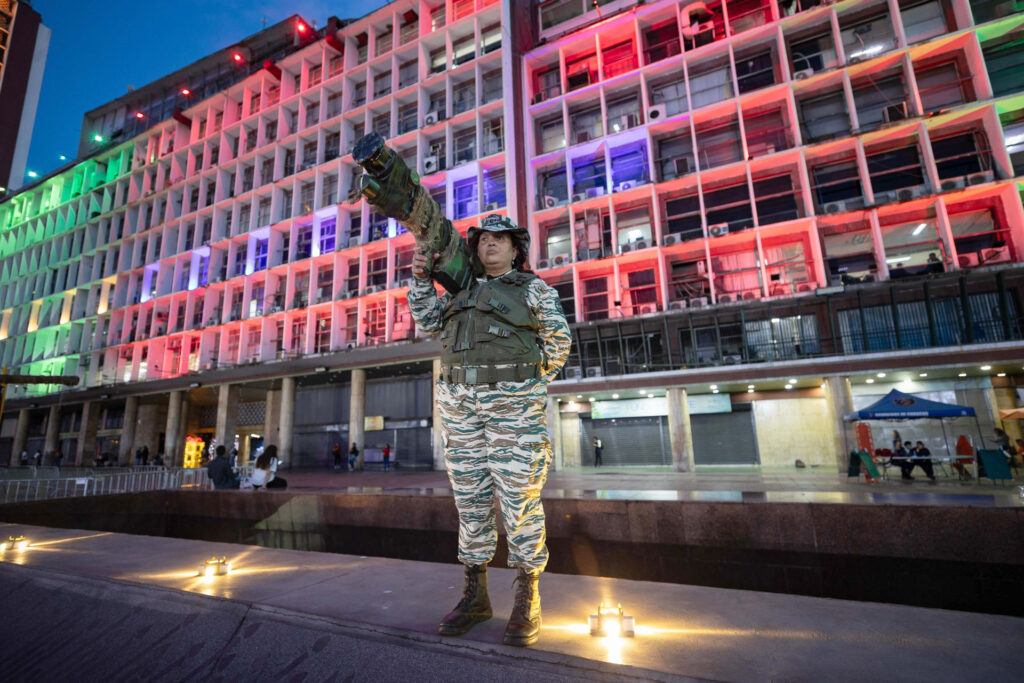Venezuelan Lives in Limbo: How Policy Shifts and War Fears Collide in the U.S.

When Temporary Protected Status expired, the end didn’t sound like gavel or siren—it smelled of coffee and cardboard. Across the U.S., Venezuelan families packed boxes, canceled leases, and faced a cruel choice: hide, leave, or risk detention in the only home they know.
Venezuelan Dreams in Exile
When the deadline struck, it wasn’t a clock that told the story—it was the smell of tape and cardboard. In a small Miami apartment, Carlos Rodríguez folded his last kitchen towel and sealed it into a box. The air smelled of coffee, dust, and endings. On Friday morning, he would hand his dog to a neighbor, end a two-year relationship, and board a plane to Spain. “Not because I want to,” he said quietly. “But because I’m being forced out—again.”
Rodríguez is one of more than 600,000 Venezuelans whose protection under Temporary Protected Status (TPS) expired that same morning, stripping them of work authorization and deportation relief overnight. His words—and those of others in this story—were reported by The Washington Post.
For years, TPS had served as a fragile bridge between two unstable realities: the chaos of Venezuela and the legal purgatory of U.S. immigration. Its sudden end turned long-time workers into the undocumented, employers into reluctant executioners, and families into transients once more.
By Friday afternoon, the shock rippled through WhatsApp groups and storefronts. Cafés closed early, workers emptied lockers, and landlords fielded tearful calls about broken leases. “It’s a city of goodbyes,” said María, a Venezuelan waitress in Miami who rushed a marriage and green-card application before the deadline. “We’re trying to build something solid on sand.”
The Day Protections Vanished
TPS, meant as a stopgap for countries in crisis, had become a lifeline after Venezuela’s collapse. Many of its recipients had fled political persecution or hunger; others had arrived through humanitarian parole and adjusted later. Overnight, the law flipped the switch.
The federal argument—that Venezuela’s conditions had improved—collides with what witnesses and analysts told The Post: an economy still gutted, dissent crushed, and repression spreading. Even as Washington dismantled TPS, it was warning Americans not to travel to Venezuela due to “wrongful detention, torture, and civil unrest.”
That contradiction, legal experts said, is devastatingly clear. “It’s the constitutional equivalent of telling people to evacuate a hurricane and closing the bridge behind them,” one attorney told The Post.
Rodríguez’s own passport had expired two years earlier, and Venezuela’s consular offices abroad have gone dormant. “They’re sending us back into the hands of our jailer,” said a 56-year-old journalist whose asylum claim has stalled in immigration court. Returning, he said, could mean detention at El Helicoide—the regime’s most infamous prison. “There’s just no winning,” he added. “You can stay and risk detention here, or go back and risk it there.”
Across Florida and Texas, uncertainty became policy. The Post documented layoffs at restaurants, construction sites, and salons. “Everything changes from week to week,” said an IT worker outside Washington, D.C. “You can’t move apartments, can’t buy a car, can’t plan a wedding.”
War Drums and Mixed Signals
The human crisis unfolds as Washington signals its own military tension in the region. U.S. forces have sunk multiple Venezuelan vessels in recent months under “counter-narcotics” operations, and a carrier group now patrols the Caribbean. One president says he “doubts” war will come; another issues threats across the water.
For Venezuelan migrants, it feels surreal. They are told their homeland is safe enough for deportation—yet dangerous enough to merit sanctions and gunships. The contradiction is not just rhetorical; it determines lives.
“These are people who did everything by the book,” said Venezuelan American activist Adelys Ferro to The Post. “Paid taxes, no criminal records, opened businesses, contributed to their communities. Now, overnight, they’re illegal.”
Her word—illegalization—lands like a diagnosis. Law, she said, has become a light switch. Flip it, and neighbors vanish.
The end of TPS also echoes the chaos of Venezuela’s own politics. After Nicolás Maduro claimed re-election in July despite independent tallies showing a landslide for his opponent, the government began mass arrests. Opposition leaders disappeared, and soldiers defected across borders. To those tracking human rights, the notion of “improved conditions” rings cruelly absurd.
Yet inside the United States, courts sided with the administration’s authority to end TPS. For Venezuelans, it didn’t feel like jurisprudence—it felt like a midnight knock. “The text came in Spanish first,” said a social worker in Houston. “Then in English. And then the panic started.”

Legal Limbo and Daily Fear
Immigration attorneys describe the aftermath as a funnel that narrows by the day. Some clients scramble into student visas, others marry, some flee to Canada. “People are anxious, but they’re also desperate,” said Florida lawyer John De La Vega. “They truly cannot return.”
The numbers make that desperation plain. According to data cited by The Post, more than 1.5 million asylum claims are pending at U.S. Citizenship and Immigration Services, with another 2.4 million clogging the immigration courts. TPS had functioned as a pressure valve. Now the steam has nowhere to go—except detention, or the shadows.
For Reinaldo De Fernández, 24, the change feels personal and absurd. Threatened in Venezuela for his activism, he reached the U.S. on humanitarian parole, learned English, finished a journalism degree, helped build a school for Indigenous Wayuu children, and spoke at a U.N. forum on human rights. “I’m eternally grateful to this country,” he told The Post. “Which makes what’s happening so heartbreaking. They’re criminalizing us, even though we’re trying to do good.”
When TPS was first revoked, he stopped going out during daylight, afraid of random checks. “It feels like a witch hunt,” he said. “You hear a knock, and your heart stops.”
Even those with pending claims now live in fear. “We used to tell clients that a filed asylum application protected them from deportation,” said one immigration advocate in New York. “That’s no longer guaranteed.”
And the impact reaches beyond individuals. Employers lose trained staff, children lose parents to deportation flights, local governments lose taxpayers. Churches and mutual-aid groups scramble to fill gaps left by vanished paychecks. “Every time we stabilize, policy changes again,” said a pastor in Miami. “We’re exhausted from being temporary.”
What Dignity Demands Now
In Washington, the argument over TPS has calcified into talking points: sovereignty, deterrence, executive discretion. Lost in that noise are the small facts of daily life—the way Rodríguez’s apartment smells of cardboard, the way María’s café stands empty, the way De Fernández deletes job offers he can no longer accept.
The truth, experts told The Post, is that TPS became a stand-in for Congress’s failure to legislate. No immigration overhaul has passed in nearly four decades, leaving presidents to patch holes with temporary measures. “What we’re seeing now reflects how tenuous many people’s footing has been—sometimes for decades,” said Kathleen Bush-Joseph of the Migration Policy Institute.
But temporary status, extended year after year, breeds its own expectations. People buy homes, start families, root their lives in new soil. To strip it away without an alternative is not just administrative—it’s moral.
“What’s happening,” Ferro said, “is not enforcement. It’s erasure.”
The administration could still change course: re-designate TPS, expedite asylum claims, or create a path to residency for those who have lived, worked, and paid taxes here. Congress could do what it has refused to do for thirty years: legislate permanence for people who have already become part of the national fabric.
There is also a geopolitical argument. The United States has poured resources into isolating Maduro and aiding Venezuelan democracy. Forcing hundreds of thousands of skilled, integrated Venezuelans into exile—or into perilous return—undermines that very policy. Many will not go back to Caracas; they will leave for Spain, Colombia, or Chile, taking their savings and their gratitude elsewhere.
And then there is the human arithmetic. Rodríguez’s flight leaves at dawn. He once imagined proposing to his girlfriend in that Miami apartment, with a small dog at his feet and cafecito on the stove. Instead, he sits on a suitcase, his boxes stacked by the door, waiting for an Uber to the airport.
“I’m leaving,” he told The Post, the last time before boarding. “But this was home.”
What he leaves behind is more than a lease or a job. It is the quiet assertion that temporary lives can still be American lives. And as another bureaucratic deadline closes, that may be the only truth left standing: when law forgets mercy, the cardboard boxes fill quickly, but the homes they empty linger for years.
Also Read: Chile’s Two Weeks of Silence: When Democracy Turns Off the Lights





